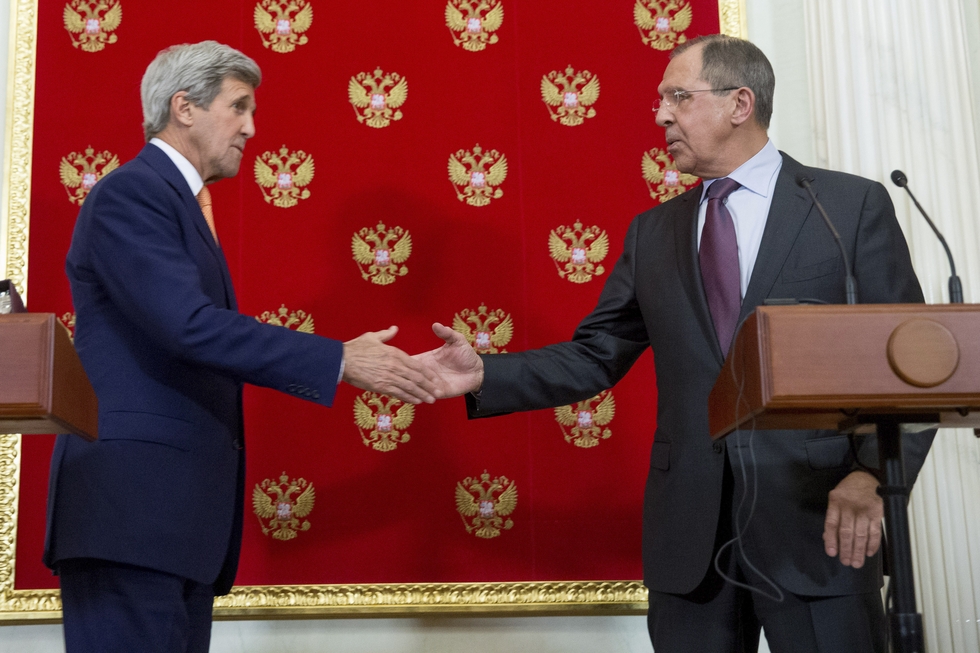US and Russia reach 'agreement' that Assad will leave Syria: Report

The US and Russia have reached an understanding that Syrian President Bashar Assad will leave to another country as part of the future peace process, according to the Lebanese Al-Hayat newspaper.
A diplomatic source on the Security Council told al-Hayat in reports published on Thursday that US Secretary of State John Kerry had "informed concerned Arab countries that the US and Russia have reached an agreement on the future of the political process in Syria, including the transfer of President Bashar al-Assad to another country".
The source said the US-Russian agreement was "clear" in diplomatic back channels, though he said that "the timing and context of that in the political process remains unclear to everyone at the moment".
The report comes as the different sides in the five-year civil war continue to struggle over the future of the country's governance.
Assad on Wednesday reiterated his call for a national unity government as the White House said his inclusion would make any such proposal a "non-starter".
As the two sides appeared deadlocked over the political transition, UN Secretary-General Ban Ki-moon highlighted the impact of the five-year conflict by urging greater efforts to tackle the country's refugee crisis at a conference in Geneva.
In an interview published on Wednesday, Assad told Russia's RIA Novosti state news agency it would be "logical for there to be independent forces, opposition forces and forces loyal to the government represented" in the new authorities.
He pushed back against opposition demands that it should be put in place without his participation, insisting that the transitional body they are calling for is "illogical and unconstitutional".
"Neither in the Syrian constitution nor in the constitution of any other country in the world is there anything that could be called a transitional body of power," Assad said.
"It is the national unity government that will prepare a new constitution."
However, the opposition quickly rejected any plan that would see Assad stay on.
Talks led by the UN's Syria envoy Staffan de Mistura paused last week with the sides deadlocked over the fate of Assad, who the opposition insists must leave power before a transitional government is agreed.
Syria's main opposition High Negotiations Committee flatly rejected the demand from Assad for any transitional government to include his government.
"International resolutions speak of ... the formation of a transitional body with full powers, including presidential powers," HNC senior member Asaad al-Zoabi said, adding "Assad should not remain for even one hour after the formation" of this body.
Responding to Assad's interview on Wednesday, White House spokesman Josh Earnest said the Syrian leader's own participation would be a "non-starter".
"I don't know whether he envisioned himself being a part of that national unity government. Obviously that would be a non-starter for us," Earnest said.
Analysts have largely been split over Assad's future, with some saying that long-time allies Moscow and Tehran would be willing to see him go, while other say that Russian and Iran will refuse to abandon him in the short to medium term out of concern that any replacement would not be sufficiently in their camp.
New MEE newsletter: Jerusalem Dispatch
Sign up to get the latest insights and analysis on Israel-Palestine, alongside Turkey Unpacked and other MEE newsletters
Middle East Eye delivers independent and unrivalled coverage and analysis of the Middle East, North Africa and beyond. To learn more about republishing this content and the associated fees, please fill out this form. More about MEE can be found here.




